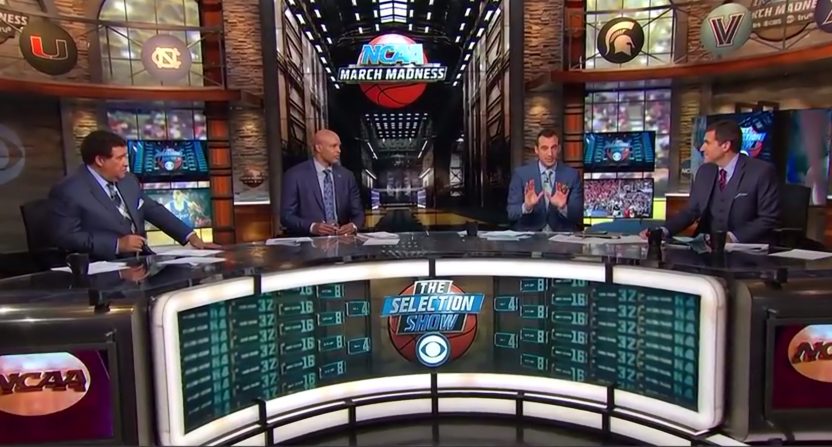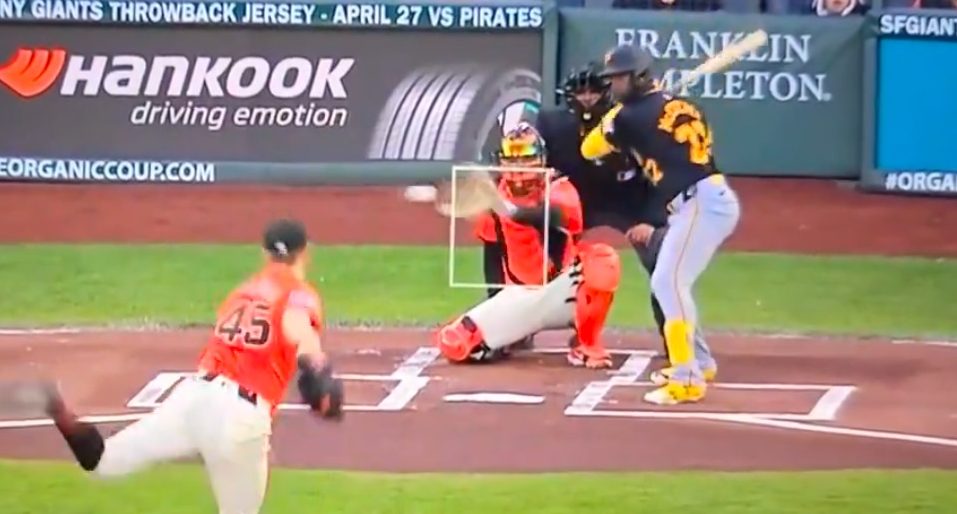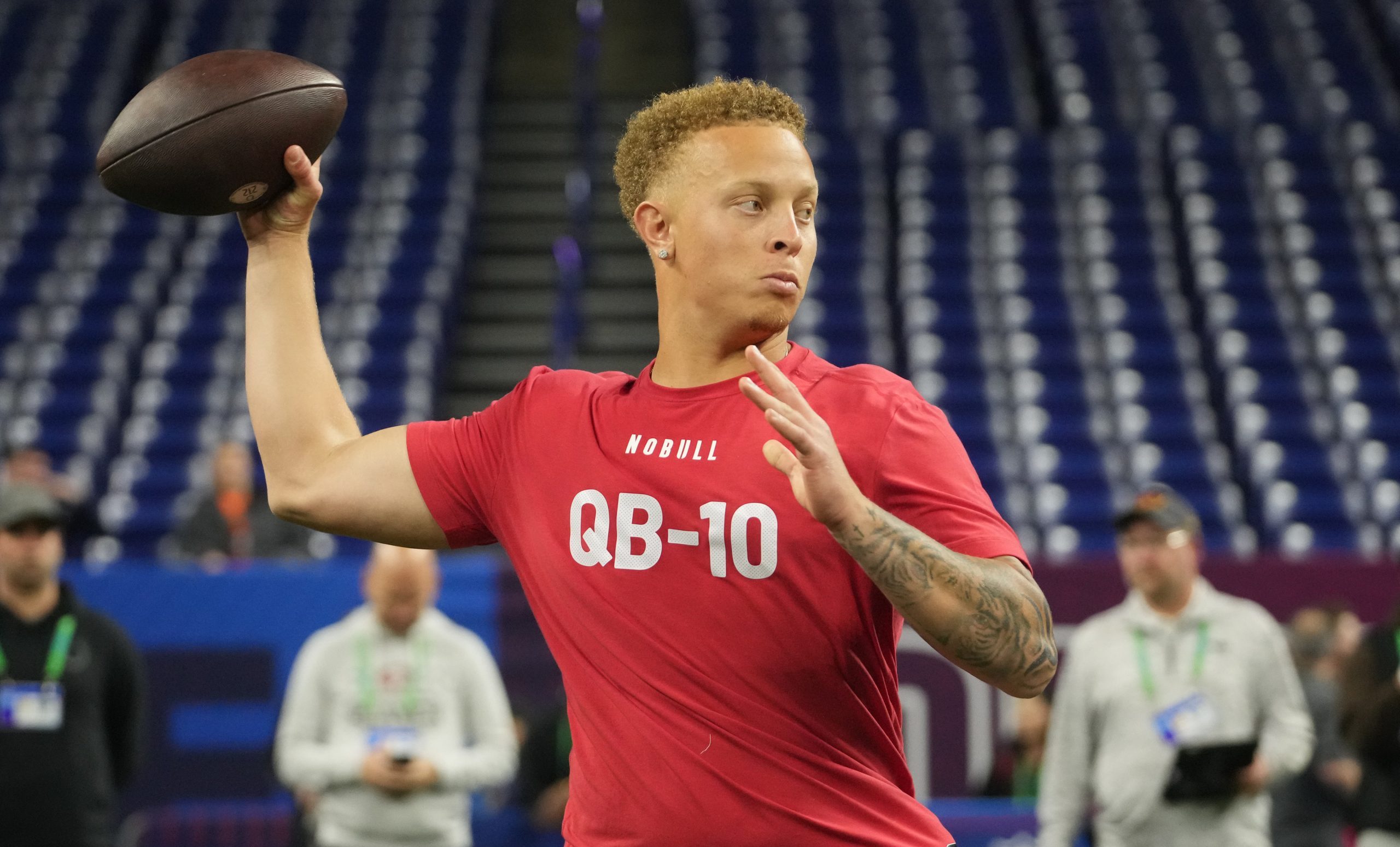In its seventh year in televising the NCAA Tournament, one can say the CBS and Turner Sports partnership has been successful. All of the games are available nationwide. Instead of waiting to be switched away from one game to another, you can pick the game you want to watch and if it’s in a blowout, you can change the channel.
The CBS/Turner marriage on the NCAA Tournament began in 2011 and was done mostly out of convenience for CBS. The contract was supposed to last until 2024, but because the partnership was so successful, the NCAA had the contract extended for another eight years through 2032.
The latest
- Could NFL see next Saudi sportswashing controversy?
- ESPN and NBA have reportedly ‘essentially come to terms’ on deal that would keep Finals on ABC
- G/O Media sells The Onion to ‘Global Tetrahedron,’ ex-NBC reporter Ben Collins to serve as CEO
- Eli Gold on Alabama exit: ‘You can’t argue with city hall.’
But before we got to this point, there was the period where CBS was hemorrhaging money on the NCAA Tournament and almost sold the event to a competing network. Now think about that. You’re televising a signature sports event dating back to the 1980s, but because the financial losses outweigh the positives, you’re willing to get out of the contract by selling the event to a competitor.
And that’s what CBS was thinking back in 2009. It was airing the NCAA Tournament in the midst of a contract that would expire in 2013. Back then, CBS would air all of the games, but in four regional windows. If you were watching the game CBS sent to your area and heard of a potential buzzer beater in another region, you’d have to wait until the network switched from your game.
If you had DirecTV, there was the Mega March Madness package that allowed you to switch games yourself, but you had to pay extra. And CBS did have the online March Madness Live, but in the early days of internet streaming, the buffering in the first two days of the tournament would be so bad, it was hardly worth the effort watching the games on the Internet.
CBS knew it had to do something to get some financial relief so one option was to actually sell the last four years of its contract from 2010 to 2013 to ESPN. Before Turner came on board, CBS’ upper echelons met with ESPN’s parent company Disney to look at the potential of having the Worldwide Leader take over the NCAA Tournament. The New York Times’ Richard Sandomir wrote about the potential mind-blowing deal:
Central to CBS’s interest in paying ESPN to take over the tournament was what it owed the N.C.A.A. for the last three years of the $6 billion deal that started in 2003. CBS was obligated to pay $657 million in 2011, $710 million in 2012 and $765 million in 2013. Losses could have been at least $200 million a year.
CBS was also looking at losing $50 million or more on its 2010 broadcast of the tournament. Moving the 2010 tournament to another network on short notice would have posed difficulties, but it was part of the CBS-ESPN talks.
But eventually, both sides decided to pass and the deal never came to fruition. But imagine if CBS and ESPN came together on an agreement and how sports television would have changed. CBS which had been broadcasting the NCAA Tournament since 1982 would be out and ESPN would be in starting in 2010.
But instead, Turner Sports came in willing to partner with CBS thus relieving the network of its financial burden. Sandomir wrote Turner Sports president David Levy knew CBS was talking with ESPN:
… Levy …, said it was no secret to him that CBS was talking to ESPN. Levy said he learned about the discussions from Sean McManus, the president of CBS News and Sports, after he started his own conversations with CBS in October.
“And we were discussing our options with other partners as well,” Levy said. “Everybody was feeling each other out and trying to figure out who to deal with.”
Levy said his impression was that the ESPN option was alive at CBS until December. By then, he said, “We and CBS were partners and we felt CBS was no longer talking to ESPN.”
So it was Turner Sports to the rescue on a $10.4 billion, 14-year contract that would last until 2024. It brought together CBS with Turner networks TBS, TNT and truTV, allowing for all of the games to have national windows. When CBS and the NCAA opted out of the old contract, there was talk that the tournament could possibly expand to 96 teams, but the NCAA elected to go with 68 instead.
And as mentioned, the partnership has been so successful for CBS and Turner, the contract was extended for $8.8 billion to 2032 effectively shutting out ESPN until then.
CBS and Turner have made the marriage work and it’s become a model for sharing of other sports television properties (Thursday Night Football between CBS/NBC and NFL Network). Both sides are very happy and with the NCAA Tournament firmly locked in for the next 15 years, it’s hard to imagine anyone else televising the event.







